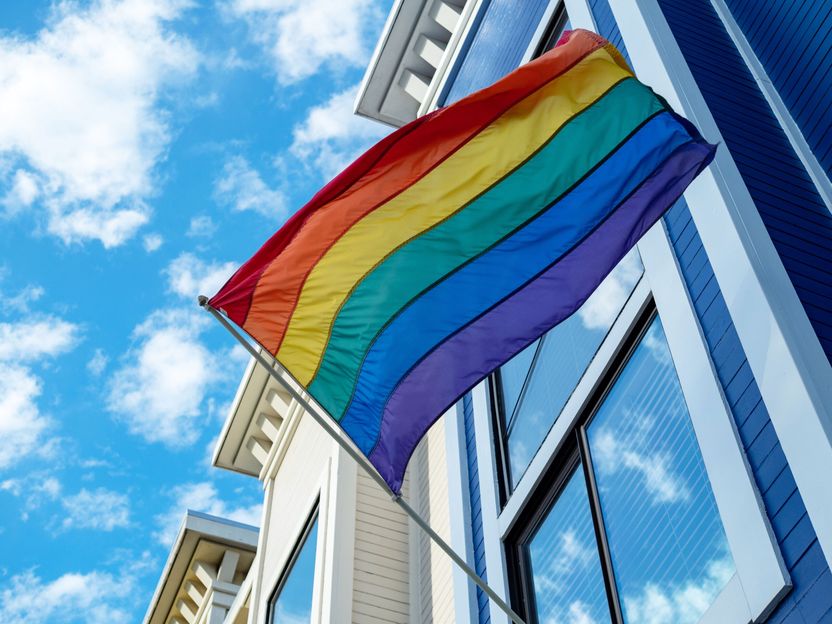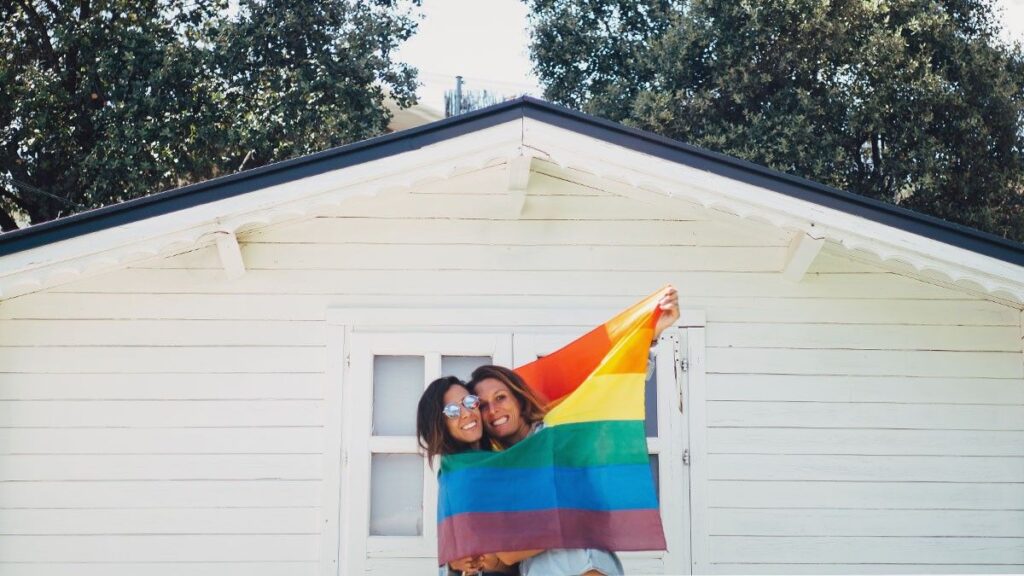
Getty Images
First comes love, then comes marriage, and then comes house hunting?
Lesbian, gay, bisexual, transgender, and queer Americans are increasingly buying homes as they get engaged or married, or form other formalized relationships, and have children, according to a recent report from the LGBTQ+ Real Estate Alliance. The alliance is a national trade group of LGBTQ+ real estate professionals and allies. The report was based on a survey filled out by nearly 400 alliance members in March.
“The LGBTQ+ community’s homeownership journey follows a very traditional cycle,” says Ryan Weyandt, CEO of the alliance. “They start as renters early in their careers and just like everybody else. Relationships, jobs, and advancements in their careers are driving homeownership. Children are also becoming more impactful in buying decisions.”
There are more than 1.2 million same-sex couples in the nation, according to U.S. Census Bureau data included in the report.
More than a third of the surveyed LGBTQ+ first-time buyers, 37.7%, said that a formalized relationship was one of the top three reasons they wanted to become homeowners. For lesbian couples, it was a much stronger motivator, with 58.4% reporting it was one of the main reasons to buy homes.
This is compared with 53.8% of straight survey respondents.
Children were another top reason that members of the LGBTQ+ purchased homes, whether their first or their fourth. It was a motivating factor for nearly 44% of survey respondents. About 29% of LGBTQ+ individuals have children, according to the Williams Institute at the University of California, Los Angeles.
Where LGBTQ+ people want to live

Getty Images
Cities remained the destination of choice for members of the LGBTQ+ community as they’re just beginning their careers, often as renters. Nearly two-thirds of members of the alliance chose to live in an urban area or central part of the city with gay men more likely to pick these destinations than lesbians or straight individuals.
That’s likely because the social and dating scenes of a prospective area are important when they’re choosing a first place to live. Being in a place with a strong LGBTQ+ presence and good nightlife was also important to many younger members of the community.
However, the community isn’t monolithic. Interestingly, nearly a fifth of lesbians started their professional careers in small towns—compared with almost 5% of gay men and about 6% of straight folks.
“The LGBTQ+ community is everywhere,” says Weyandt.
Nearly half of LGBTQ+ folks bought their first homes in urban areas, compared with about a third of straight people. More than 40% purchased in the suburbs, while roughly 10% bought in small towns or rural areas.
When purchasing a home, the social, dating, and nightlife scenes weren’t top considerations. That might be because many buyers are older, in relationships, and more settled down—and they might not be as interested in partying into the wee hours.
“We value so much of the same things as everyone else,” Erin Morrison, alliance member and a Realtor® in Texas, said in a statement. “We want access to good jobs, affordability, to be near our friends and family, have loving relationships and live in welcoming communities.”
LGBTQ+ Americans still face housing discrimination
A record 520-plus anti-LGBTQ+ bills had been introduced in state legislatures as of late May, according to the Human Rights Campaign. Seventy have been enacted.
In the past year, about 29% of LGBTQ+ people said they had experienced housing discrimination or harassment, according to the Center for American Progress. And about a fifth of alliance members say that discrimination against LGBTQ+ homebuyers is on the rise.
“Discrimination and the fear of it are a pervasive problem,” says Weyandt. “Imagine your LGBTQ+ child looking for a home and having to consider so many aspects to the decision that others might not. It’s not only the home, the neighborhood, and the schools they’re looking at. It’s how will they be welcomed? Will they be welcomed? What if they have children? How will the children be received in the neighborhood, in the school district?”
Transgender buyers might have to sign forms with names that do not reflect their gender identities. Sellers might be reluctant to choose LGBTQ+ buyers. And real estate agents, landlords, and leasing agents might discriminate against members of the community.
This is leading many LGBTQ+ Americans to consider moving out of their communities and states. Some are worried about being harassed or bothered by their neighbors because of their sexual orientations or gender identities.
“The hope is this period of anti-LGBTQ+ legislation and rhetoric are just another blip and a barrier to overcome for the community to be fully accepted,” says Weyandt. “The most important thing we have to remember is that LGBTQ+ people are people. And we have to welcome them for who they are.”
The post The LGBTQ+ Community Is Increasingly Buying Homes for This Big Reason appeared first on Real Estate News & Insights | realtor.com®.
